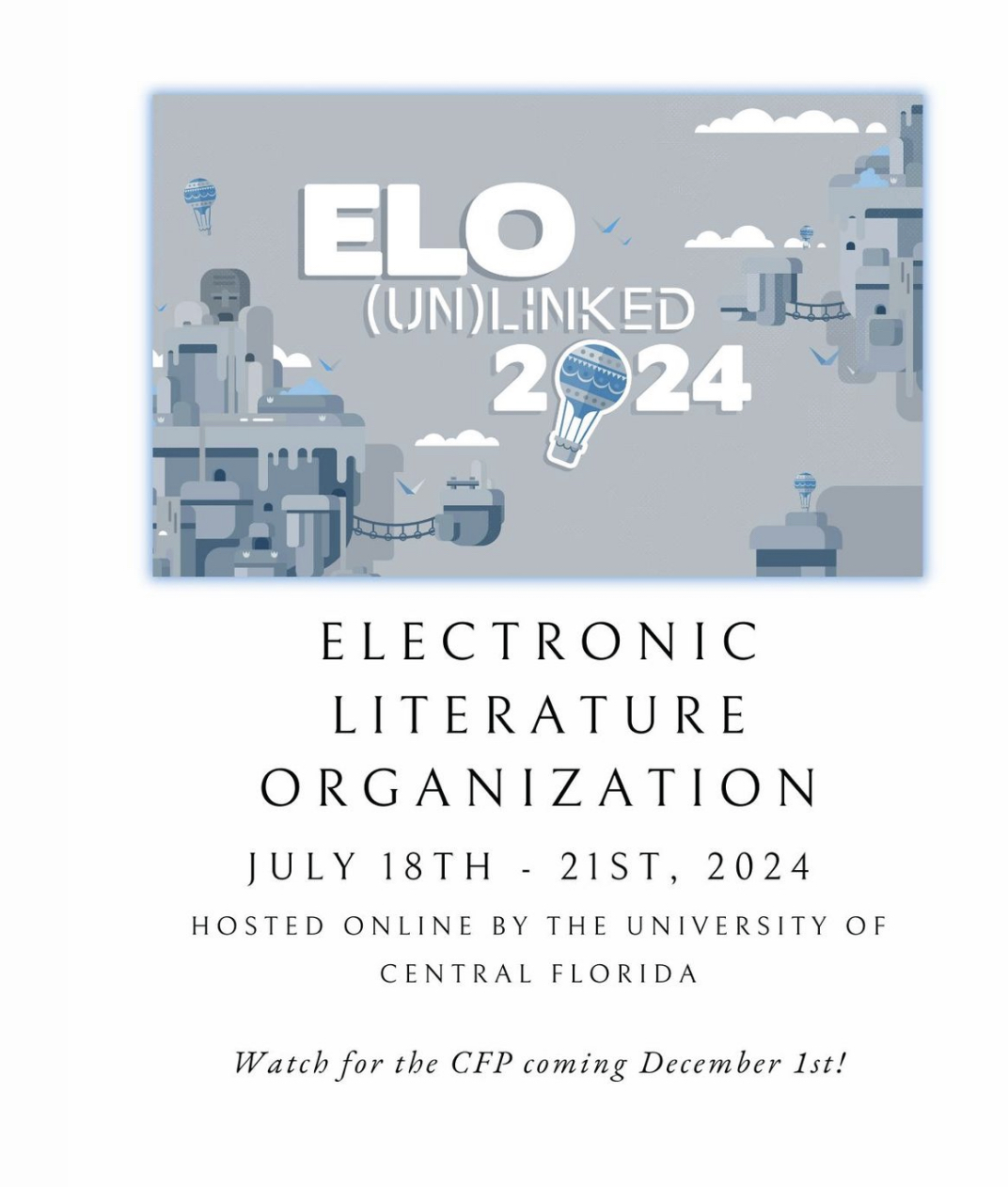Calls
-
Call for Submissions: Electronic Literature Collection Volume 5 (ELC5)
ELC5 is now accepting submissions through January 31, 2026 (AoE). Read more.
-
Call for Nominations: 2025 ELO Awards
The Electronic Literature Organization is proud to offer the following four prestigious awards: The Robert Coover Award for a Work of Electronic Literature, The N. Katherine Hayles Award for Criticism… Read more.
-
CFP: ELO25 @ 25: Toronto (July 11-13; ext deadline Jan. 15, 2025)
Organizers: Caitlin Fisher (York) and Lai-Tze Fan (Waterloo) Locations: Toronto, Canada and Waterloo, Canada For its 25th anniversary, Electronic Literature Organization (ELO) is holding an international in-person conference and media… Read more.
·
-
CALL FOR NOMINATIONS: 2024 ELO AWARDS
The Electronic Literature Organization is proud to offer the following four prestigious awards: The Robert Coover Award for a Work of Electronic Literature, The N. Katherine Hayles Award for Criticism… Read more.
·
-
CFP: ELO 2024 (Feb 15; July 18-21, 2024)
Electronic Literature Organization (ELO) Conference and Media Festival 2024 – Virtual – Call for Proposals – #ELOnline SUBMIT NOW! We invite submissions for presentations, performances, and exhibition pieces at the annual Electronic Literature Organization… Read more.
·
-
Save the Date: The ELO 2024 Main Conference is coming!
We’re excited to announce that this year’s Electronic Literature Organization Conference will be fully online July 18-21 2024, hosted by UCF and colleagues from around the world. Our team is… Read more.
-
ELO Fellowship Call for Applications
ELO FELLOWSHIP CALL FOR APPLICATIONS DEADLINE 15 MARCH The ELO is continuing its expansion of scholarly activity, creative, and curatorial practices with the appointment of four graduate and early career… Read more.
·
-
CFP: ELO 2023 Coimbra (Extended Jan 31; July 12-15, 2023)
ELECTRONIC LITERATURE ORGANIZATION 2023 INTERNATIONAL CONFERENCE AND MEDIA ARTS SHOW OVERCOMING DIVIDES: ELECTRONIC LITERATURE AND SOCIAL CHANGE JULY 12-15, 2023 – COIMBRA, PORTUGAL Deadline January 31 (CFP: updated January 20,… Read more.
·
-
Call for Nominations: ELO Awards
The Electronic Literature Organization is proud to offer the following three prestigious awards: The Robert Coover Award for a Work of Electronic Literature, The N. Katherine Hayles Award for Criticism… Read more.
-
CFP: ELO 2022 Special Call: Mentoring Exhibition (March 15)
“Show me how to do this” Learning E-lit by Making Together CFP: ELO 2022 Special Call: Mentoring Exhibition Deadline March 15, 2022 Extended to April 1, 2022 Online Exhibition: June… Read more.

